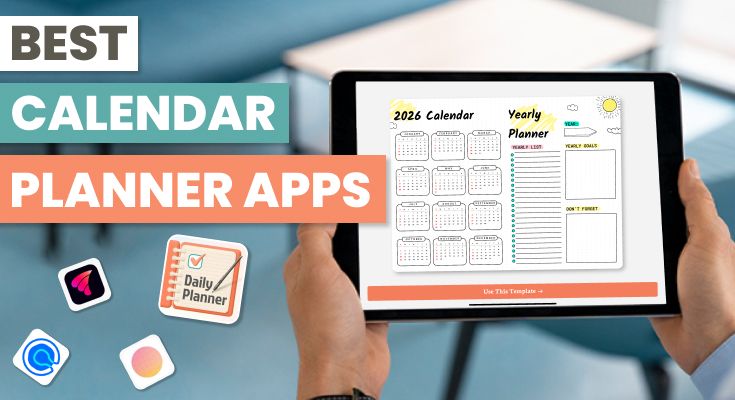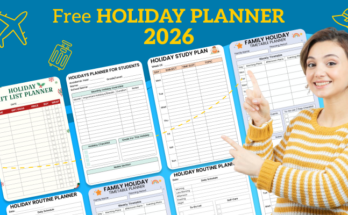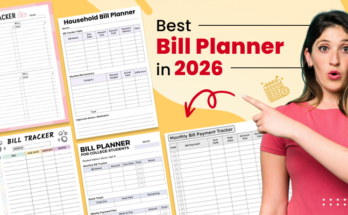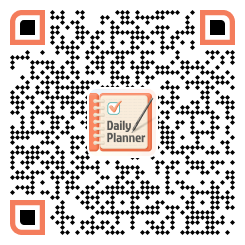Staying organized in today’s fast-paced world can be challenging, but the right tools make it easier. Our calendar maker gives you ready-to-use templates that let you design personalized calendars in minutes, perfect for keeping track of important dates, events, and schedules. But if you want more than just templates, modern calendar planner apps take organization to the next level. They help you manage daily tasks, set reminders, track goals, and boost productivity all in one place.
In this guide, we highlight the top 12 best apps for calendar planners in 2026 to help you find the best planner that fits your lifestyle.
📅 List of Top 12 Calendar Planner Apps
PlanWiz
Intuitive templates for structured planning and goal tracking.
Akiflow
Smart task management with workflow automation to boost productivity.
Morgen Calendar
Unified calendar for meetings, tasks, and easy scheduling.
Google Calendar
Reliable calendar for events, reminders, and seamless collaboration.
Structured
Visually organized daily planning for tasks and routines.
Vimcal
Fast, minimal calendar for effortless scheduling.
Calendly Mobile
Easy appointment booking and calendar management on the go.
Any.do
Task lists, reminders, and daily planning in one app.
Things 3
A clean, elegant task manager for personal and professional planning.
ClickUp
All-in-one productivity tool for tasks, projects, and calendars.
Timepage
Beautiful calendar app with weather, heatmaps, and scheduling features.
Habit Tracker
Track habits, set goals, and build daily routines easily.
1. PlanWiz – Intuitive Templates for Structured Planning and Goal Tracking
Planwiz is a versatile calendar planner app for students, professionals, freelancers, and creatives. Unlike traditional calendar apps, it offers customizable templates to plan daily routines, organize weekly schedules with weekly planner templates, and manage long-term projects efficiently.
Its clean drag-and-drop interface makes creating and adjusting schedules simple. You can also collaborate in real-time, making it ideal for teams, study groups, or family planning with family planner templates.
With cross-device syncing, your schedules are always up-to-date across iOS, Android, iPad, and web platforms. PlanWiz transforms planning from a tedious task into a flexible and highly productive experience.
Key Features:
- Pre-designed templates for daily, weekly, and monthly planning
- Drag-and-drop schedule creation for effortless organization
- Shareable templates for team or family collaboration
- Task prioritization and time-blocking tools
- Cross-device syncing across iOS, iPadOS, Android, and Web
- Customizable color coding and layout options
- Import and export templates for reuse or sharing
- Reminders and notifications for tasks, events, and habits
- Option to attach notes, links, or files to tasks and events
Advantages:
- Free daily planner templates designed to fit any planning style.
- User-friendly, intuitive interface suitable for beginners
- Supports collaborative planning with friends, colleagues, or family
- Time-blocking and priority tools for maximum productivity
- Plan your day and long-term goals with our goal planner templates.
- Easy to share and edit templates across devices
- Great for students, professionals, and freelancers alike
Disadvantages:
- Limited third-party integrations with other apps and tools
- Some advanced features may have a slight learning curve for new users
- Offline functionality is restricted; best performance requires an internet connection
2. Akiflow – Smart Task Management with Workflow Automation

Akiflow is a productivity-focused calendar planner that combines tasks, meetings, and reminders in one interface. It’s ideal for professionals and freelancers who want efficient workflow and time-blocking. Its clean design ensures distraction-free planning across devices.
Key Features:
- Unified view of tasks, meetings, and deadlines
- Calendar integrations with Google Calendar and Outlook
- Quick task capture and scheduling
- Time-blocking and priority management
- Smart notifications and reminders
Advantages:
- Unified task and calendar view
- Excellent time-blocking implementation
- Multiple app integrations
- Focus mode eliminates distractions
- Cross-platform synchronization
Disadvantages:
- Steep learning curve
- Expensive premium tiers
- Limited template options
- Requires a constant internet connection
- Heavy resource usage on mobile
- Complex interface for casual users
- Limited offline functionality
3. Morgen Calendar – Unified Calendar with Meeting Scheduling and Task Integration

Morgen Calendar is a sleek app for managing tasks, meetings, and deadlines in one interface. It syncs across devices and simplifies daily and long-term planning. Smart reminders and recurring events help users stay organized effortlessly.
Key Features:
- Unified calendar for tasks and events
- Cross-device synchronization
- Smart notifications and reminders
- Recurring events support
- Drag-and-drop task scheduling
Advantages:
- Excellent calendar consolidation
- Clean, intuitive interface
- Strong team features
- Time zone handling
- Good third-party integrations
Disadvantages:
- Limited template customization
- Subscription required for advanced features
- Occasional sync delays
- No offline access
- Basic task management
- Limited mobile functionality
- Expensive for individual users
4. Google Calendar – Reliable Calendar for Events, Reminders, and Collaboration

Google Calendar is a versatile, cloud-based app for personal and professional scheduling. It integrates with Gmail and other Google Workspace tools for seamless planning. Shared calendars and notifications make it easy to manage multiple schedules.
Key Features:
- Event scheduling with reminders
- Shared calendars for collaboration
- Multiple calendar management
- Integration with Google Workspace
- Cross-device syncing
Advantages:
- Completely free
- Excellent ecosystem integration
- Reliable syncing
- Smart event creation
- Wide platform availability
Disadvantages:
- Basic customization options
- Limited planning templates
- Privacy concerns
- No advanced time-blocking
- Minimal task management
- Generic interface design
- Limited offline functionality
5. Structured – Visually Organized Daily Planning for Tasks and Routines

Structured is a visual calendar app focused on daily planning with timeline views. Users can block time for tasks, events, and routines efficiently. Its drag-and-drop interface ensures flexible and organized scheduling.
Key Features:
- Timeline view for daily planning
- Drag-and-drop task scheduling
- Reminders and notifications
- Recurring tasks support
- Integration with other calendar apps
Advantages:
- Beautiful visual design
- Excellent for daily routines
- Great widget implementation
- Simple time-blocking
- Good habit tracking
Disadvantages:
- iOS only
- Limited project planning features
- No collaboration options
- Basic calendar integration
- Expensive premium features
- Limited customization depth
- No web version
6. Vimcal – Fast, Minimal Calendar for Effortless Scheduling

Vimcal is a fast and intuitive calendar app designed for professionals. It focuses on quick scheduling, time-blocking, and productivity. Users can manage meetings and tasks efficiently without switching apps.
Key Features:
- Fast scheduling and task management
- Calendar integrations with Google and Outlook
- Smart reminders and notifications
- Time-blocking features
- Recurring event support
Advantages:
- Fast scheduling workflow
- Professional networking features
- Excellent meeting management
- Good team coordination
- Time zone intelligence
Disadvantages:
- Limited template options
- Expensive pricing
- Learning curve for features
- No offline functionality
- Basic task management
- Limited mobile features
- Requires subscription for most features
7. Calendly Mobile – Easy Appointment Booking and Calendar Management On The Go

Calendly Mobile is a scheduling app focused on booking and event coordination. It simplifies appointment scheduling with automated reminders and calendar syncing. Perfect for teams or individuals managing multiple appointments.
Key Features:
- Automated meeting scheduling
- Calendar integrations
- Notifications and reminders
- Recurring event support
- Shareable scheduling links
Advantages:
- Excellent for appointment scheduling
- Strong automation features
- Good integration ecosystem
- Professional appearance
- Reliable booking system
Disadvantages:
- Limited daily planning features
- Expensive for individual use
- No template customization
- Basic calendar view
- Requires a separate calendar app
- Limited offline functionality
- Complex setup process
8. Any.do – Task Lists, Reminders, and Daily Planning in One App

Any.do is a task and calendar app designed for daily planning and productivity tracking. It combines tasks, reminders, and a simple calendar interface. Its clean layout helps users stay organized and focused.
Key Features:
- Task management and reminders
- Calendar view for events
- Cross-device syncing
- Recurring tasks support
- Collaboration with others
Advantages:
- Good task-calendar integration
- Voice input capabilities
- Location-based reminders
- Clean interface design
- Cross-platform availability
Disadvantages:
- Limited template options
- Basic calendar features
- Premium features expensive
- No advanced time-blocking
- Limited collaboration tools
- Occasional sync issues
- Basic customization options
9. Things 3 – A Clean, Elegant Task Manager for Planning Personal and Professional Life

Things 3 is a project and task management app with a beautiful, minimalist interface. It helps users organize projects, set deadlines, and track progress visually. Ideal for creatives and professionals managing multiple projects.
Key Features:
- Project and task management
- Calendar integration
- Visual timeline and checklists
- Recurring tasks support
- Tagging and organization tools
Advantages:
- Beautiful, intuitive design
- Excellent task organization
- Natural language processing
- Good calendar integration
- Strong iOS ecosystem integration
Disadvantages:
- Apple platforms only
- No collaboration features
- Expensive one-time purchase
- Limited template options
- Basic calendar functionality
- No web access
- No Android version
10. ClickUp – All-In-One Productivity Tool for Tasks, Projects, and Calendars

ClickUp is an all-in-one productivity platform that combines task management, projects, and calendar planning. It’s designed for teams and individuals seeking an organized workflow. Users can track tasks, deadlines, and goals in one interface.
Key Features:
- Task management with priorities
- Project tracking and milestones
- Calendar and timeline views
- Collaboration tools for teams
- Notifications and reminders
Advantages:
- Highly customizable
- Strong project management features
- Good team collaboration
- Multiple viewing options
- Extensive integration options
Disadvantages:
- Overwhelming for simple planning
- Steep learning curve
- Can be slow on mobile
- Complex interface
- Expensive team plans
- Heavy resource usage
- Feature overload for casual users
11. Timepage – Beautiful Calendar App with Weather, Heatmaps, and Scheduling Features

Timepage is a calendar app with an elegant design and intuitive planning features. It combines events, weather, and maps in a single interface. Its smooth visual layout makes daily planning more enjoyable.
Key Features:
- Visual daily planner
- Weather integration
- Event and task reminders
- Timeline view
- Cross-device syncing
Advantages:
- Gorgeous design
- Weather integration
- Good widget implementation
- Travel time estimates
- Clean user interface
Disadvantages:
- Limited planning features
- No template options
- Basic task management
- Expensive premium features
- Limited collaboration
- No web version
- iOS focuses on limited Android features
12. Habit Tracker – Track Habits, Set Goals, and Build Daily Routines Easily

Habit Tracker is a productivity app designed to track habits and routines. It helps users stay consistent with daily, weekly, and monthly goals. Its simple interface provides a clear overview of progress and streaks.
Key Features:
- Daily habit tracking
- Visual progress charts
- Reminders and notifications
- Goal setting and streak tracking
- Integration with calendar apps
Advantages:
- Excellent habit tracking
- Good visual feedback
- Simple interface
- Effective reminder system
- Affordable pricing
Disadvantages:
- Limited to habit tracking
- Basic calendar integration
- No project planning features
- Limited customization
- No collaboration features
- Basic reporting
- Limited template options
Comparison Table: Best Calendar Planner Apps at a Glance
| 📱 App | 👤 Best For | ⭐ Standout Feature | 💻 Platforms | 💲 Price |
|---|---|---|---|---|
| PlanWiz | Students, freelancers, professionals | Template-based planning & sharing | iOS, iPadOS, Android, Web | Free / Paid |
| Akiflow | Busy professionals & freelancers | Unified tasks + time blocking | macOS, Windows, iOS, Android, Web | Paid |
| Morgen Calendar | Simple cross-device planning | Clean multi-calendar view | Web, iOS, Android | Free / Paid |
| Google Calendar | Teams, families, students | Workspace & Gmail integration | Web, iOS, Android | Free |
| Structured | Daily planners & routines | Timeline block scheduling | iOS, iPadOS | Free / Paid |
| Vimcal | Professionals needing speed | Fast scheduling & shortcuts | macOS, Windows, iOS, Android | Paid |
| Calendly Mobile | Appointment booking & events | Auto meeting links & reminders | iOS, Android, Web | Free / Paid |
| Any.do | Everyday personal planning | Tasks + calendar in one | iOS, Android, Web | Free / Paid |
| Things 3 | Apple users, creatives | Elegant project/task design | iOS, macOS | Paid |
| ClickUp | Teams & managers | Projects + calendar in one | Web, iOS, Android, Mac, Windows | Free / Paid |
| Timepage | Design lovers & students | Visual timeline + weather | iOS, iPadOS | Paid |
| Habit Tracker | Building routines & habits | Visual streaks & progress | iOS, Android | Free / Paid |
What Are Calendar Planner Apps and Why Do You Need One in 2026?
Digital calendar planning apps are more than just calendars; they’re comprehensive productivity tools that help you organize, prioritize, and manage your time efficiently. Unlike simple apps that only show dates, these planners combine task management, templates, and collaboration features in one place.
Why You Need a Calendar Planner App?
Modern life is more complex than ever. Remote work, online classes, and multiple commitments make it hard to keep track of everything. A daily time planner app helps you:
- Organize multiple contexts: Manage both personal and professional schedules in one place.
- Automate reminders: Never miss deadlines or appointments again.
- Use customizable templates: plan daily, weekly, or monthly routines based on your lifestyle. Use templates, and also access daily journal templates.
- Sync across devices: Access your schedule on your phone, tablet, or computer seamlessly.
Key Benefits of Modern Best Calendar Planner Apps
- Time-blocking: Allocate specific time slots for focused work or study.
- Habit tracking: Build consistency with daily routines and goal tracking.
- Collaboration features: Coordinate plans with teammates, classmates, or family members.
- Smart templates: Quickly use pre-made templates for common planning scenarios.
- Personalized suggestions: Apps can offer recommendations based on your patterns and habits.
By using the weekly planner app, you reduce the friction of daily planning, save time, and stay on top of tasks without feeling overwhelmed.
How Do Calendar Planner Apps Improve Daily Productivity?
The best apps for calendar planners enhance productivity by combining time blocking, habit tracking, and task prioritization. Utilizing these strategies enables you to manage your day more efficiently, reduce stress, and focus on what truly matters.
1. Time Blocking
Time blocking means assigning specific hours to each task or activity, creating a visual schedule that prevents overcommitment.
Benefits:
- Provides clarity on what to work on and when
- Protects deep work periods from interruptions
- Reduces decision fatigue
Example:
A freelance designer using PlanWiz might structure their day like this:
- 9:00–11:00 AM → Creative work
- 11:00–12:00 PM → Client communication
- 2:00–4:00 PM → Business development
This ensures important tasks get dedicated attention without distractions.
Pro Tip – Time Blocking
- ⏱️ Use color-coded blocks to separate work, meetings, and breaks
- 🔁 Add short buffers between tasks to prevent overruns
- 📊 Keep a weekly review to rebalance your blocks
2. Habit Tracking
Habit tracking helps you build consistency by making progress visible.
Benefits:
- Encourages completion through visible streaks
- Reinforces positive behaviors using the “don’t break the chain” method
- Helps form long-term habits, like daily exercise or study routines
Example:
The daily calendar planner app can track habits like morning planning, study sessions, or workout routines. Seeing a streak of completed days motivates you to maintain consistency.
Pro Tip – Habit Tracking
- 🔁 Start with 2–3 core habits to avoid overwhelm
- 🔔 Use reminders to maintain streaks
- 📈 Visualize progress with streak charts to stay motivated
3. Task Prioritization
Prioritizing tasks ensures you focus on what matters most.
Benefits:
- Highlights urgent and important tasks
- Prevents smaller, less critical tasks from taking over your schedule
- Improves decision-making by providing clarity on deadlines
Example:
Many calendar planning apps for students include task matrices or priority categories, allowing students to categorize assignments and exams based on urgency and importance.
Pro Tip – Task Prioritization
- 🗂️ Categorize tasks by urgency and importance each morning
- 🎯 Mark your top 1–3 priorities for the day and protect that time
- 🔄 Reassess priorities in the evening to plan tomorrow effectively
Which Calendar Planner App Is Right for You?
The best apps for calendar planners depend on your lifestyle, responsibilities, and workflow. Different apps serve different needs, whether for academics, professional tasks, creative projects, or family coordination.
1. Students
Students need apps that help track deadlines, manage study schedules, and stay organized.
- PlanWiz: Offers pre-designed templates for semester planning, exams, and weekly study schedules. Customizable layouts make it easy to maintain consistency and share schedules with classmates.
- Google Calendar: Integrates classes, exams, and assignments, with shared calendar options for group projects.
- Any.do: Simplifies task management with reminders and easy-to-use lists for assignments and projects.
Balance classes, assignments, and exams with planner apps that simplify academic life and reduce stress.
Read more: Top Daily Planner Apps for Managing Class Schedules and Study Time
Why it works:
- Centralizes academic tasks and deadlines
- Provides a visual overview of study plans
- Supports collaborative planning with classmates
2. Professionals
Professionals require apps that combine meeting scheduling, task management, and project coordination.
- PlanWiz: Lets you integrate tasks with your calendar, enabling time-blocking and project-focused planning.
- ClickUp: Advanced project management tools with task lists, priorities, and calendar views.
- Vimcal: A fast and intuitive scheduling tool ideal for meetings and reminders.
Why it works:
- Keeps work schedules and deadlines organized
- Reduces scheduling conflicts across teams
- Helps prioritize important projects
Streamline meetings, projects, and deadlines with minimalist planner templates designed for productivity at work.
Read more: Minimalist Project Meeting Agenda Planner Template for Smooth Execution
3. Freelancers & Creatives
Freelancers need apps that provide flexibility for client projects, creative planning, and progress tracking.
- PlanWiz: Fully customizable templates for project timelines, client management, and income tracking, with shareable layouts.
- Akiflow: Combines tasks, deadlines, and calendar events for streamlined project management.
- Things 3: Offers visually intuitive layouts to organize projects and tasks efficiently.
Stay organized across multiple clients and projects with flexible task trackers tailored for freelancers.
Read more: Project Task Tracker Template for Freelancers to Manage Multiple Clients
Why it works:
- Adapts to multiple projects and deadlines
- Enables shared templates for client transparency
- Supports visual tracking of tasks and milestones
4. Families & Groups
Families or groups need apps that coordinate schedules, events, and responsibilities seamlessly.
- PlanWiz: Collaborative templates allow multiple users to view, edit, and share schedules.
- Google Calendar: Let all family members see shared events, appointments, and reminders.
- Calendly Mobile: Easily helps schedule group events or coordinate activities.
Why it works:
- Keeps everyone informed and on the same page
- Reduces conflicts with shared planning
- Makes recurring tasks and events easy to manage
Keep your household organized with shared chore charts and collaborative planner templates everyone can access.
Read more: How a Family Chore Chart Planner Template Can Simplify Household Tasks
Frequently Asked Questions
For students, apps like Structured, Google Calendar, Timepage, and Habit Tracker work well for organizing study schedules, assignments, and recurring tasks. Professionals may prefer PlanWiz, Akiflow, Things 3, ClickUp, or Vimcal for advanced task management, project tracking, and integrations.
Yes, free daily time planner apps are available. Google Calendar, Any.do, Vimcal, and Habit Tracker offer free versions with essential scheduling and reminder features. Apps like PlanWiz, Akiflow, Structured, and ClickUp provide both free and paid plans.
Premium digital calendar planner apps such as PlanWiz, Akiflow, Things 3, ClickUp, and Timepage provide advanced features like offline access, deep integrations, customizable templates, and analytics. Free apps like Google Calendar, Vimcal, Any.do, and Habit Tracker focus on core scheduling, reminders, and basic time-blocking.
PlanWiz, Akiflow, Structured, and ClickUp are highly customizable, offering template-based layouts, drag-and-drop planning, and flexible time-blocking. Apps like Vimcal and Any.do allow personalized reminders and scheduling styles, while Things 3 and Morgen Calendar focus on project workflows and detailed task organization.
Final Thoughts – Which Calendar planner app Should You Try First?
Calendar planner apps aren’t just digital tools; they’re productivity partners that help you organize time, tasks, and routines with less effort. While each app on this list offers unique strengths, PlanWiz stands out for its customizable templates, intuitive design, and collaborative features that make planning both flexible and practical.
How to choose the right app:
- Look for apps with ready-to-use templates that match your workflow
- Test the free version before committing to a paid plan
- Personalize schedules so they reflect your lifestyle and priorities
Your next step: Try PlanWiz or another app from the list, experiment with templates, and start building a system that not only keeps you on track but also reduces stress and boosts daily productivity.








